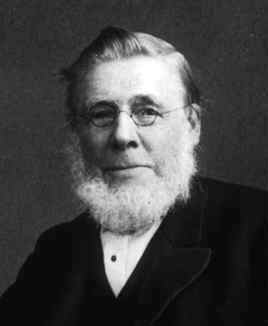
The School of Mathematics & Statistics’ biographical approach to the history of mathematics has been soundly justified by the online MacTutor History of Mathematics Archive. By drawing attention to mathematicians who had undeservedly been forgotten by other sources, MacTutor has become indispensable for the study of mathematical history. The project has moved beyond academia and into the mainstream. With its frequent citations by figures in traditional and social media, it has brought an understanding of mathematical history to the wider public.
Since August 2013 the project has been continually updated with new biographies of mathematicians from around the world, resulting in a current total of over 3,000 entries ranging from the most well-known figures to those largely forgotten. The necessary research has come from a diverse and sometimes surprising array of sources. One example is the extensive manuscript and rare books collection of the University of St Andrews Special Collections, which MacTutor has used to offer a new insight into the work of Scottish mathematicians including William Wallace, John Leslie and James Ivory. This manuscript work began in 2000 and has complicated the traditionally Cambridge-centred historiography of mathematics by demonstrating the importance of less well-known figures.
Uncovering Edward Sang

Professor Alex Craik’s work on Edward Sang is one of many instances in which the work of the MacTutor team has impacted the historiography of mathematics. Sang was almost unknown before Professor Craik’s research, which was published in the British Society for the History of Mathematics Newsletter in 2002 and Historia Mathematica in February of 2003. This research was impactful on both academic and general audiences. Craik’s work is cited by, the Oxford Dictionary of National Biography’s entry on Sang, and is central to the Wikipedia page created for him in 2010.
Born in Kircaldy in 1805, Sang began attending Edinburgh University aged just thirteen. By his mid-twenties Sang was teaching mathematics at Edinburgh, after which he lectured in Manchester. Apparently harbouring a newfound taste for travel, his next stop was Constantinople, where he established engineering schools and planned railways and an ironworks. Remarkably, despite this busy career, Sang and his two daughters also managed to compile more than 47 volumes of logarithmic and mathematical tables in what little spare time they had. It has been argued that these manuscripts surpass their contemporaries in terms of accuracy, rendering the achievement of their creators even more impressive. It is thanks to MacTutor that the achievements of mathematicians like Edward Sang have been brought to light, and the importance of their work has been widely appreciated.
Since its inception, the MacTutor archive has had a consistent and impressive impact. Its scale and quality has earned it a place at the heart of established academic environments, including the reading lists of universities around the world and lesson planning websites such as GeoGebra and Merlot. MacTutor has also found popularity with the media, most notably BBC Radio 4’s In Our Time. Its prominence has led to the diffusion of much of the information that was once unique to MacTutor to popular websites. Since 2013, Wikipedia has created over 170 new articles around mathematicians who were previously discoverable only on MacTutor. This influence has continued in the era of social media, with MacTutor informing discussions on sites such as Reddit and Twitter.
This profound impact has partly been made possible by the continued and sustainable growth of the project. Continued corrections, additions and collaborations with sites such as MathSciNet have encouraged further usage, with the website sustaining an average of approximately two million hits each week since mid-2013.
With new pages continuously added, MacTutor will remain a lasting example of the impact of accessible research. Luckily, it is not alone; you can read about the School of History’s ambitious project to record every book ever printed up to 1650.

